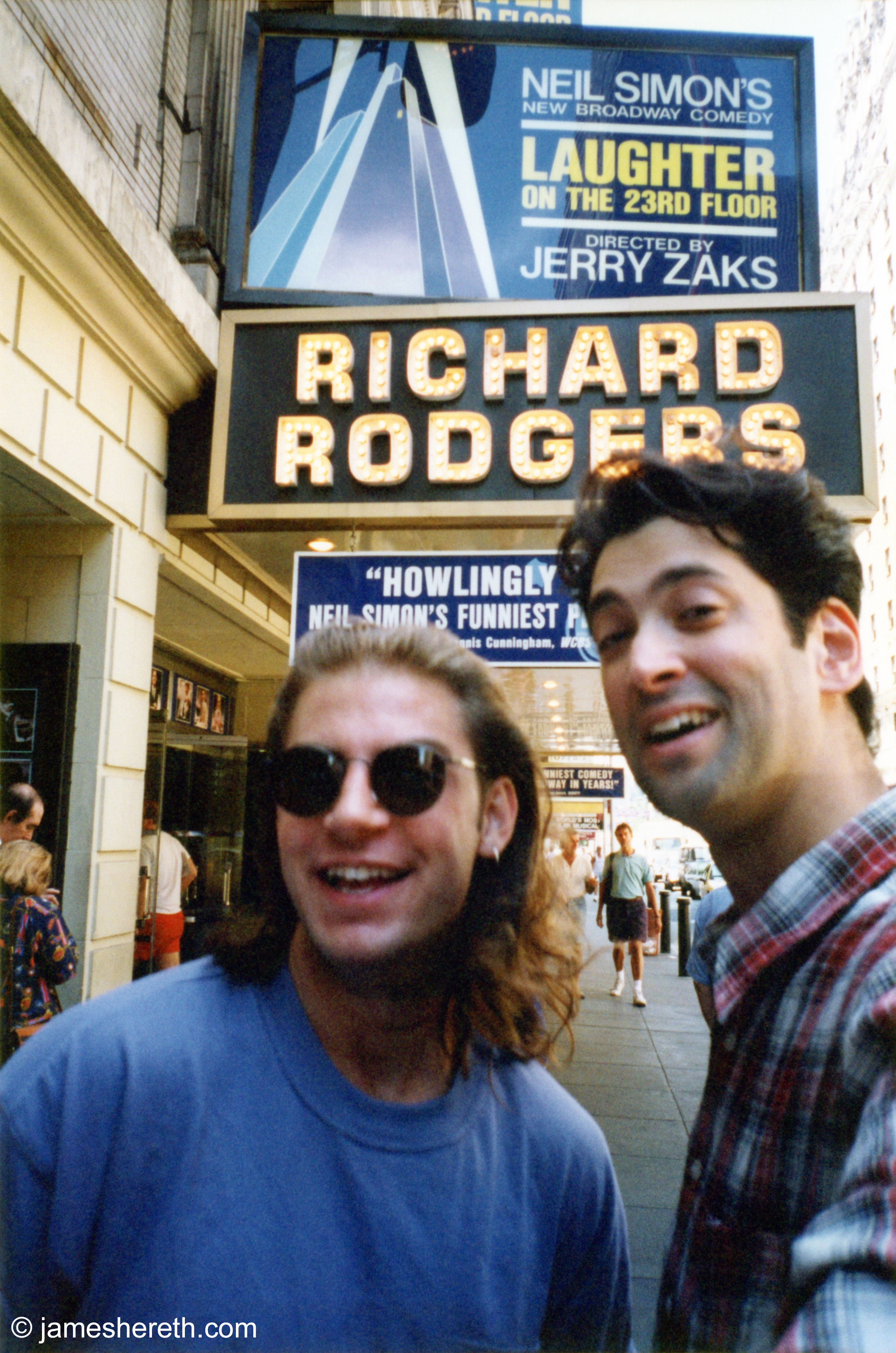
Two writers at a Broadway show about writers. This is where the universe begins to fold in on itself.
As an aspiring Hollywood hyphenate, the first network you have coming out of college (provided you even went to college), is your fellow alumni.
Screenwriter and director Harry Elfont was part of that NYU network for me, and we spent some of our early professional years struggling side-by-side to make something happen.
And then for Harry, it did. Hard.
Harry and his writing partner, Deb Kaplan, were part of the spec script frenzy of the nineties, leading to a very exciting start to their careers.
And although their spec was never produced, they went on to write a series of movies, including “A Very Brady Sequel,” “Surviving Christmas,” and “Leap Year,” as well as their feature directorial debut, “Can’t Hardly Wait.”
His latest project is the series, “Mary + Jane,” which just wrapped up its first season on MTV. I dug in a little to find out the “hows” behind Harry’s success, and it went a little something like this…
What’s the first thing you remember writing that wasn’t a school assignment?
In third grade I wrote a comic strip called Grampa Fuzzy (that spelling was a strong creative choice) which was basically a character that looked like Cousin It from the Addams Family with a top hat and a basic face. I got super annoyed when some other kids in the class started doodling the character in their notebooks. My teacher tried to explain that imitation is the sincerest form of flattery and all that, but I wasn’t having it. I was clearly very concerned with intellectual property rights at a young age. I actually submitted the strips to the local Philadelphia papers. They sent a very nice rejection letter. Which is understandable because one of the strips was literally ripped off from a Ziggy (way before Seinfeld did it).
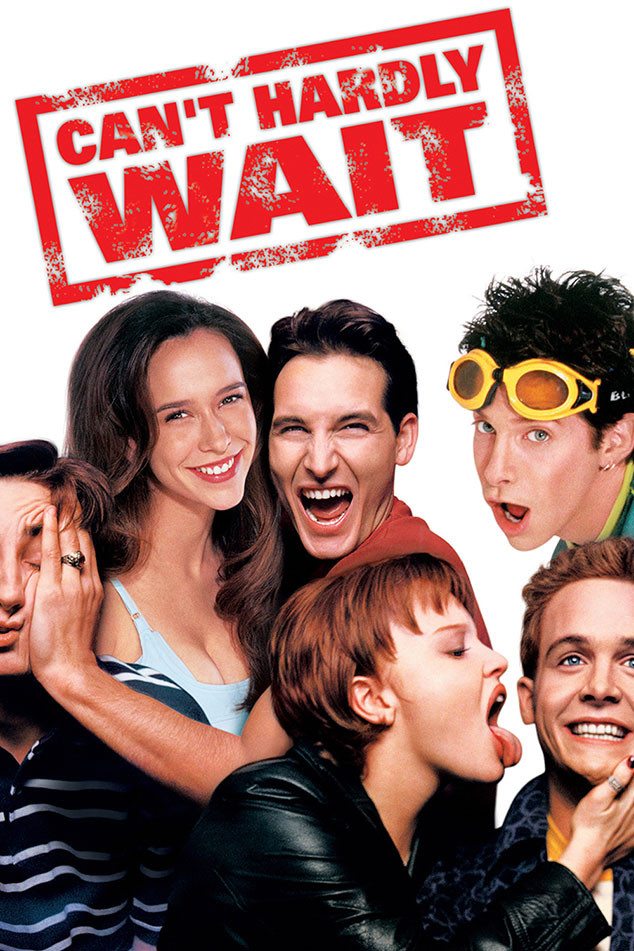
Can’t Hardly Wait… For walking-around goggles to come back into style.
What do you consider your professional “big break,” and how did it come about?
Definitely when Deb Kaplan and I sold our spec screenplay “The Family Way” to Paramount and The Ladd Company in the mid 90’s.
It led directly to our first produced credit (A Very Brady Sequel) and opened all kinds of doors for us in the movie business. It’s also how we met producer Jenno Topping, who would later produce Can’t Hardly Wait.
It came about when Deb called me when she was on location working as an assistant to a producer, but feeling the urge to do something more creative. She had an idea for a romantic comedy and suggested we write it together. So we did.
What’s your writing process as a team? Do you work together over the computer, split a script into sections, take turns on consecutive drafts, etc.?
We outline together, then split up scenes to write separately. We usually write a couple of scenes at a time (enough for one or two day’s worth of work), then read each other’s pages and keep moving forward. We tend to not go back and makes changes in the first rough draft. We just keep going until we get to the end. It’s the fastest way to power though a first draft. Then we can read it through and see what we’ve really got. We get together and discuss our notes on the draft. If there are scenes that need to be re-written from scratch, we’ll split those up. Then we sit in the same room and polish the draft together.
What do you like most about writing features?
Typing THE END. Kidding. Kind of. Because there is a limited amount of time and a definite ending, movies tend to be more story driven. So I like the ability to just tell a good story start to finish. Deb and I spend a lot of time talking about structure when writing a feature. We talk in terms of the traditional three act structure as a guide (though, depending on the project, deviate as desired). A big studio comedy might call for large scale set-pieces which can be fun to invent, but a small character driven film can be pages of very dense dialogue. Each can be fun to write in their own way.
What do you like most about writing television?
What’s great about TV is that there is no ending! At least not one we’re planning for… I’ve been enjoying the ability to keep telling new stories each week for the same characters and not really worrying where it’s going in the end. Obviously each episode has it’s own structure, but our show isn’t serialized, so each week we do a pretty full reset, which has been liberating. I do think it’d be great to do a serialized show as well. And tell one huge over-arcing story over many episodes, but there’s definitely a creative freedom to knowing each episode you can reinvent and try something new.
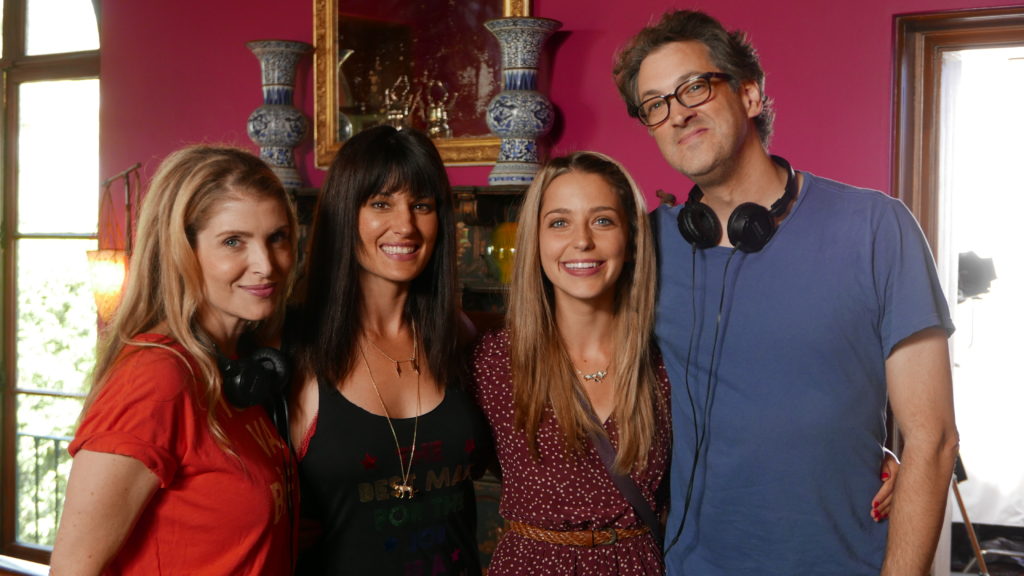
Deb Kaplan and Harry Elfont flanking “Mary + Jane” stars Scout Durwood and Jessica Rothe
It’s also been interesting to write for the same characters and the same performers over ten episodes.
It’s been fun to dig deeper into who these characters are, how their relationship changes, and how to write towards the strengths of our very talented performers.
The real truth is, after spending a lot of time writing features that wind up in development hell, or pilots that never make it to air, the real thing I like about movies or TV is finally getting the work in front of an audience. That’s the whole point of all of this, but it’s actually a rare occurrence.
What was the genesis of “Mary + Jane?” Did someone come to you to develop the idea or did you two create it from scratch and pitch it around town?
It was our original idea and we had started to pitch it — nothing formal, we just mentioned the idea to people in meetings — and we kept getting the same response: “So it’s like a younger version of Weeds.” We knew our show should feel very different from Weeds tonally, so we decided we’d be better off if we just wrote the pilot on spec. We’d also been through some rough development experiences with TV pilots, so we were eager to just write something that we liked. And not really worry about making sure there’s enough exposition in the opening scenes, and be as out there as we wanted to with language, or comedy or tone. It was actually the first pilot script we ever wrote on spec. And turned out to be the first series we ever had picked up to air.
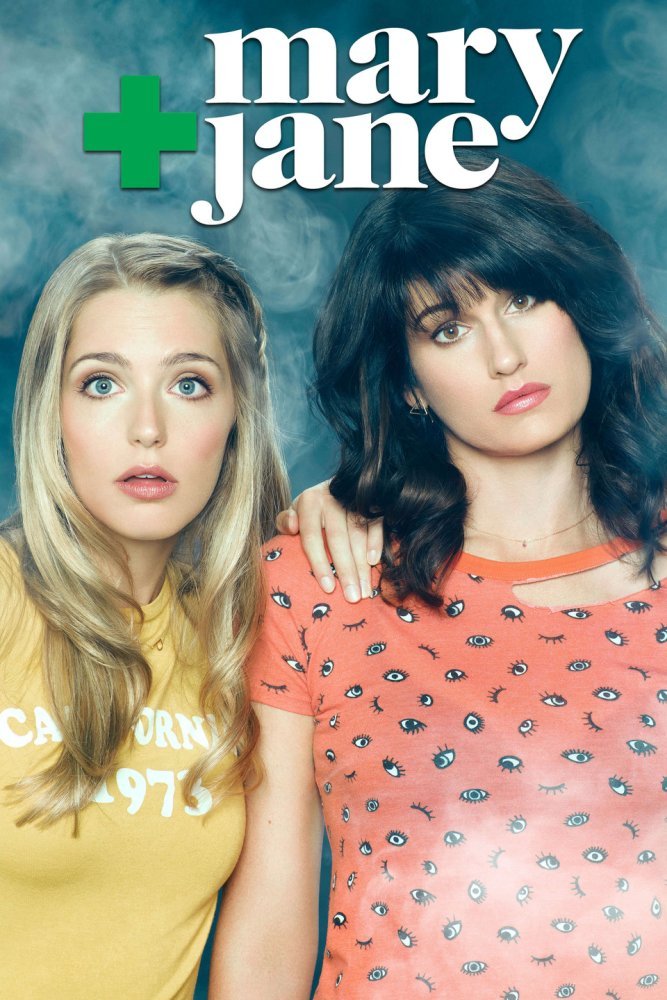
If I didn’t know any better, I’d think this show had something to do with pot.
What’s it like to produce a television series with Snoop Dogg?
There is nobody cooler than Snoop Dogg. He actually joined the project after we went into production, but he’s been an incredibly supportive partner in promoting the show and being our resident weed expert. He also ended up writing a theme song for us. It’s pretty staggering when you hear that iconic Snoop Dogg voice singing about your show.
Other than “Mary + Jane,” what was your favorite project to work on?
Probably Can’t Hardly Wait. It was the first movie we directed and basically the whole movie is set at a party, so every day we went to “work” at a party.
The cast was all young and unknown for the most part and the budget was pretty low, so there wasn’t a lot of pressure on the set. Everyone on the crew (who’d been doing this for years) kept telling us, “It’s never like this. Enjoy it!”
It’s also been nice to see that movie find an audience after it was released and be one of those touchstone high school movies for people who were teenagers at the time.
If you could get your hands on any property to develop – books, plays, toys, previously produced movies or series, etc. – what would it be?
After having written sequels, TV show-to movies, and comic adaptations, I’d personally rather work on original material. That said, I wouldn’t turn down a Star Wars movie if they were offering!
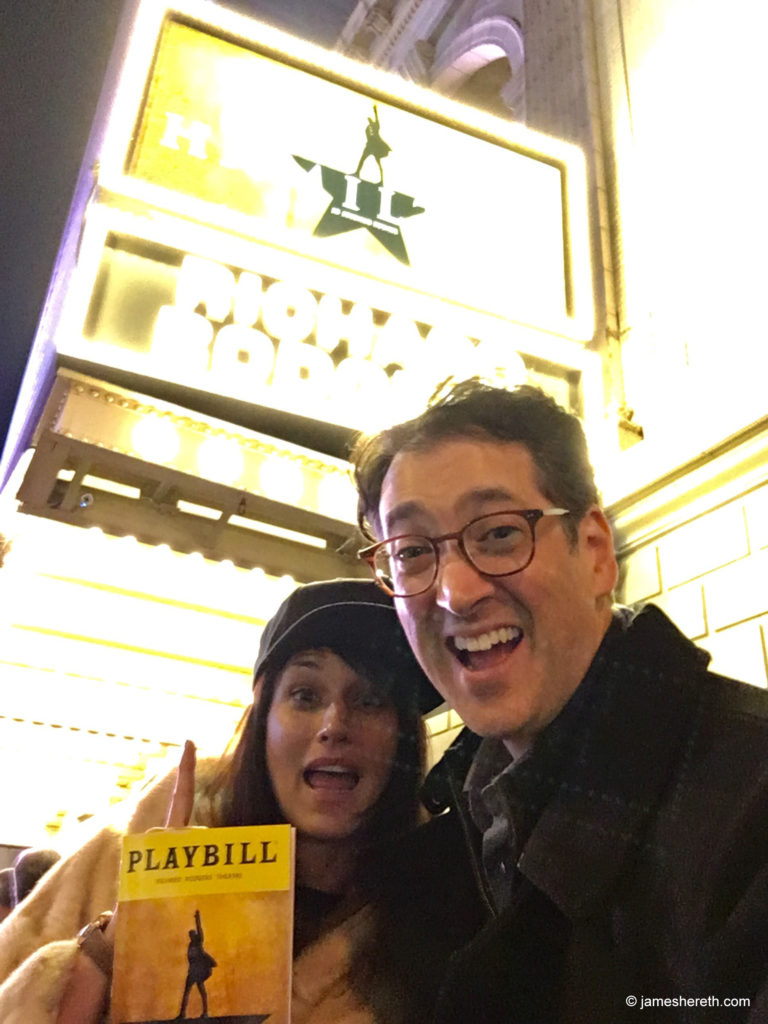
Scout Durwood and Harry Elfont in front of the Richard Rodgers Theater, bringing this post full-circle 22 years later.
Now that you’ve been working in this business for a while, what are you better at today than you were when you started out?
Time management. But that’s mostly because now I have a family. I like to think my taste has gotten better and that my writing has evolved, but that’s tough for me to judge.
What kind of advice would you give to writers looking to follow in your footsteps?
Obviously, write as much as you can. Not just on that one screenplay or pilot. Finish one and come up with the next one. Keep generating material. You’ll keep getting better with each draft.
The other thing is to make sure you’re working on something you would actually like to see as a viewer. Otherwise you’re just trying to play the market.
THE SHORT ATTENTION SPAN ROUND
Star Wars or Star Trek?
Star Wars
Coffee or Tea?
Both
Charlie Chaplin or Buster Keaton?
Keaton
Other than “Both” (the correct answer is “Coffee”), Harry had almost a perfect score! You can check out any episodes that you missed of his show, “Mary + Jane,” on Amazon right this very second.
![[TEXTSMITH] BLOG](https://blog.jameshereth.com/wp-content/uploads/2016/07/cropped-cropped-BulbsPlus.jpg)